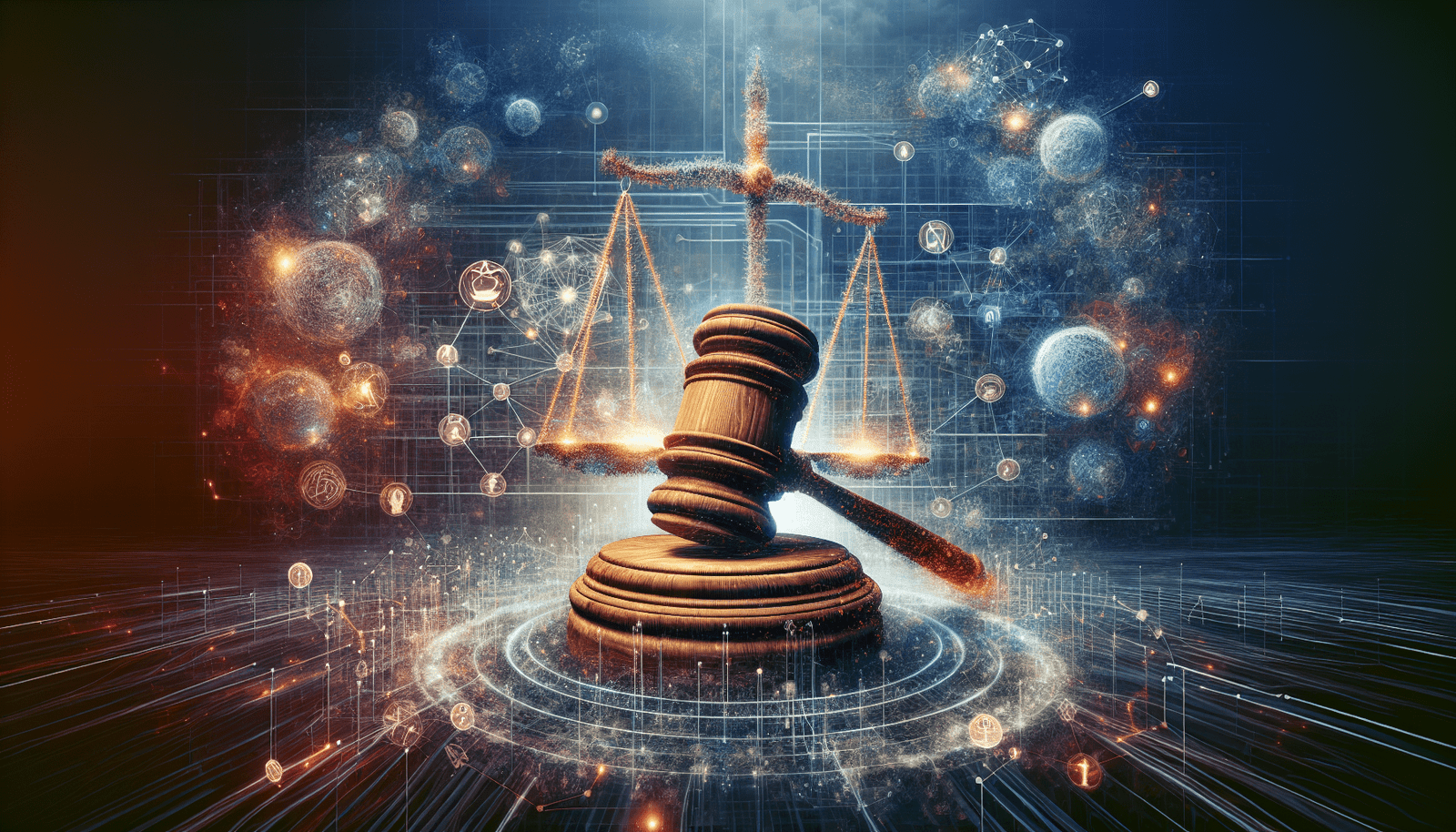In the article “Host Provider Liability for Illegal Content,” I delve into the legal complexities faced by host providers when it comes to managing user-generated content. As we navigate the digital landscape, it’s crucial to understand not only the responsibilities but also the potential liabilities that come with hosting platforms where content can be freely shared. Drawing from my own experiences and peppering the narrative with a touch of humor, I aim to unravel the intricate web of regulations and guidelines that ensure compliance while fostering an open yet safe online environment. Whether you’re a budding entrepreneur or a seasoned webmaster, this comprehensive guide provides insights and actionable advice to keep your platform on the right side of the law. Have you ever wondered what happens when someone posts illegal content on a website and how the website owner or host provider gets roped into the whole mess? Imagine hosting a seemingly innocent blog or forum, and suddenly, you’re served with legal papers because someone decided to post something wildly inappropriate or downright illegal. Sounds like a nightmare, right? But it’s a reality that many online content providers face today. So, what’s the deal with host provider liability for illegal content, and why should you care?

Host Provider Liability for Illegal Content
The internet can be a beautiful place full of cat videos, DIY projects, and endless memes. However, it can also be a breeding ground for unsavory and illegal content. When it comes to managing a website or online platform, it’s crucial to understand where the buck stops—responsibility-wise—when your users share something illegal. Let’s dive deep into the nitty-gritty.
What is Illegal Content?
Alright, first things first. What constitutes “illegal content” online? Illegal content can range from copyright infringements, defamation, hate speech, and incitements to violence, to child pornography and terrorism-related materials. Essentially, it’s any content that breaks the law of your country or the host country of the website.
Why Should Host Providers Worry?
So you might be thinking, “I’m just providing the space; why should I be responsible?” Well, the law doesn’t always see it that way. Host providers can be held liable under certain circumstances, and the rules can vary significantly from one jurisdiction to another. Ignorance is not bliss when it comes to running an online platform. A little knowledge can go a long way in avoiding hefty fines or even jail time.
A Brief History of Host Provider Liability
Let’s take a historical detour for a moment. Remember the early days of the internet? It was like the Wild West—anything and everything went. As the internet evolved, so did the laws governing it. Today, we have regulations like the Digital Millennium Copyright Act (DMCA) in the U.S., and the E-Commerce Directive in the EU, to name a few. These laws set the groundwork for who is responsible when users get out of line.
DMCA and Safe Harbor Provisions
What is the DMCA?
The Digital Millennium Copyright Act was enacted in 1998. Its aim? To balance the interests of copyright owners and online service providers, which include host providers. Think of it as the referee in the copyright infringement tag game.
What is Safe Harbor?
Ever heard of Safe Harbor? No, it’s not a cozy boat dock—it’s a crucial concept for host providers. Under the DMCA, Safe Harbor provisions protect host providers from being held liable for user-uploaded content, provided they follow certain rules. It’s like a get-out-of-jail-free card but with strings attached.
How to Qualify for Safe Harbor
To take advantage of the Safe Harbor provisions, host providers must:
- Act expeditiously to remove or disable access to the illegal content upon receiving a valid notice.
- Not have actual knowledge of the illegal content.
- Not receive a financial benefit directly attributable to the illegal activity.
- Designate an agent to receive infringement notifications and make this information publicly available.
The Take-Down Process
Receiving a DMCA takedown notice can be a pulse-quickening experience. Picture opening an official-looking email that throws around words like “infringement” and “legal action.” The take-down process generally involves:
- Receiving a Notice: A copyright holder sends a notice to the designated agent.
- Evaluating the Notice: Ensure the notice meets statutory requirements—like including the specific URLs of the infringing material.
- Taking Action: If valid, you must expeditively remove or disable access to the material.
Case Study: YouTube and DMCA
Ah, YouTube. A vast sea of video content and a hotbed for DMCA notices. YouTube’s Content ID system is its front line of defense. The system detects potentially infringing content automatically, offering copyright holders options to block, monetize, or track views.

E-Commerce Directive and Other Regulations
The EU E-Commerce Directive
Picture the EU E-Commerce Directive as the European counterpart to the DMCA, but with some differences. Enacted in 2000, it sets out rules for liability of intermediary services, including host providers.
Notice and Takedown
Much like the DMCA, the E-Commerce Directive places an emphasis on the “notice and takedown” approach but lacks the formal “Safe Harbor” as explicitly laid out in the DMCA. It’s kind of like having a safety net but with a few holes in it.
Emerging Regulations: GDPR and Online Safety Bill
More recently, the GDPR came into play in the EU, primarily concerned with data privacy but also impacting host providers indirectly. The proposed Online Safety Bill in the UK is another example, focusing more on harmful and illegal content, particularly for social media giants.
Practical Steps for Host Providers
Content Moderation Policies
Alright, here’s a funny story. A friend of mine once told me his harmless post about “how to cook bacon” was flagged for violence because it mentioned frying meat in a pan! Clearly, content moderation isn’t perfect, but having robust policies in place is crucial.
- Pre-Moderation: Content is reviewed before it’s posted.
- Post-Moderation: Content is reviewed after it’s posted.
- Reactive Moderation: Relying on user reports to flag illegal content.
Employing Filtering Technology
Remember the good old days when you had to manually search for inappropriate content on your website? No? Me neither, thank heavens for technology! Employing advanced filtering algorithms can help detect illegal content before it even makes its way onto your site. Companies like Google and Facebook invest heavily in AI-based filters, and while they’re not foolproof, they’re a significant step forward.
Legal Consultation
Yes, it costs money. But consulting with a legal expert can save you a boatload of headaches later. A legal consultation can help you understand what you’re up against and set up the necessary safeguards to protect yourself and your online venture.
Real-World Examples and Case Laws
Case Study: Viacom v. YouTube
Let’s head into the courtroom for a second. In 2007, Viacom sued YouTube for a whopping $1 billion, alleging widespread copyright infringement. It was like a courtroom drama series, but real. The case dragged on for years but ultimately ended in YouTube’s favor in 2013, thanks largely to the Safe Harbor provisions.
Case Study: Delfi AS v. Estonia
In this case, an Estonian news website was held liable for offensive comments posted by its users. The European Court of Human Rights ruled against Delfi AS, stating that the comments were akin to hate speech and could incite violence. It was a wake-up call for European host providers, showing that Safe Harbor doesn’t always apply.
Emerging Tech: Blockchain and IoT
Ah, the wild frontier of blockchain and IoT. These technologies are revolutionizing the internet but come with a fresh set of liability issues. For instance, who is responsible if a smart contract goes awry and triggers illegal activities? The decentralized nature of these technologies complicates traditional notions of liability.
Cybersecurity and Liability
Data Breaches and Their Consequences
Data breaches are the internet age’s version of a bank heist, only instead of cash, cybercriminals make off with personal data. And guess who’s held liable? Yup, the host provider. Ensuring robust cybersecurity measures can shield you from potential litigation.
Legal Requirements for Data Protection
It’s not just good practice; it’s the law. Various jurisdictions have stringent legal requirements for data protection. For instance, the GDPR mandates that organizations must protect personal data using appropriate security measures.
Steps to Secure Your Platform
- Encrypt Data: Encryption turns your data into unreadable text without the correct decryption key. It’s like locking up your valuables in a digital safe.
- Regular Security Audits: Think of this as a health check-up for your website. Regular audits can identify and rectify vulnerabilities before they’re exploited.
- Use Secure Payment Gateways: If you’re handling transactions, ensure you’re using secure payment gateways compliant with regulations like PCI-DSS.
Future Trends and Emerging Issues
AI and Liability
Remember when rogue AI robots were just a sci-fi plot? Well, now AI is real, and its unintended consequences are too. How do you hold an AI accountable for moderating content? The legal system is still catching up, and until then, the liability often falls on the host provider.
Autonomous Vehicles and Online Platforms
Imagine an autonomous vehicle gets into an accident, and it turns out the software controlling it downloaded illegal patches from an online platform. Who’s liable? The car manufacturer? The software developer? Or the host provider that allowed the illegal patches? As tech evolves, so do the liability questions.
Social Media and Influencer Liability
Social media platforms are like the Wild West for content. Just when you thought it was safe, another influencer gets caught in a scandal for promoting scam products. As a host provider, understanding the dynamics at play can help you navigate the complex web of liability.
Conclusion
So, there you have it—host provider liability for illegal content in a nutshell. It’s a tangled web of laws, regulations, and best practices that can seem overwhelming. However, staying informed and proactive can help you navigate this maze without stumbling into trouble. If you’re running an online platform, whether it’s a blog, forum, or e-commerce site, understanding your liabilities and how to manage them is crucial. It’s not just about avoiding fines or lawsuits; it’s about fostering a safe and legal online environment for everyone involved.



